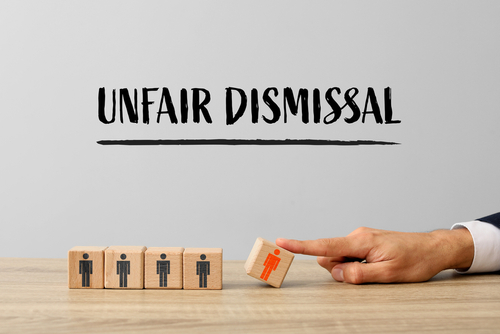‘Sexually predatory’ manager who won case for unfair dismissal not entitled to compensation
A senior manager fired for sexually harassing up to ten junior female colleagues has won his case for unfair dismissal because his employer did not follow the correct disciplinary procedures, a tribunal has ruled.
John Woods was the deputy chief conciliator for Acas (the Advisory, Conciliation and Arbitration Service) - the UK's independent and impartial statutory body providing free and impartial information and advice to employers and employees on all aspects of workplace relations and employment law.
Despite winning his case, Woods will not receive a penny of compensation after the tribunal heard his behaviour was so bad that even if the appropriate rules had been followed, he'd have been sacked for gross misconduct anyway.
What happened in this case?
John Woods, who had worked for Acas for nearly 40 years, was first accused of 'sexually predatory behaviour' in 2018.
An internal investigation then found as many as ten women felt he had subjected them to inappropriate conduct going back over five years including suggestive comments and texts with 'innuendo, compliments and kisses' as well as leaving a pair of knickers on a co-worker's desk.
Woods, who had sexual relationships with some of the women, was suspended and sacked at a disciplinary hearing for gross misconduct in 2019.
He agreed he had a flirtatious manner but argued this was different from sexual harassment and allegedly moaned that the MeToo movement had 'changed the rules' and 'lowered the bar for sexual harassment'.
What is unfair dismissal?
Unfair dismissal is where an employer terminates an employee's contract without a fair reason to do so.
An employee can claim unfair dismissal, as in this case, if the employer had a fair reason but handled the dismissal using the wrong procedures.
Why did the judge rule that Mr Woods had been unfairly dismissed but wasn't entitled to compensation?
The tribunal ruled that Acas was within its rights to sack Woods but that it had not followed its own disciplinary processes correctly and gone beyond its own internal and external policies and guidance.
The identity of witnesses was unfairly left anonymous, the court heard, so Woods didn't know who was making the accusations and was not given some witness statements.
However, Judge David Khan said Woods had shown no remorse and breached his position of trust.
"It is relevant that Woods was in a senior leadership role and in a position of trust as well as authority," he said. "There was therefore a demonstrable pattern of harassing conduct by Woods which was directed at junior female colleagues.
"He showed no insight or remorse into the impact that his actions had on his colleagues although he acknowledged, at his appeal, that some of his colleagues would no longer work with him."
What do Acas say about this case?
A spokesperson for Acas said the organisation does not tolerate any form of bullying, harassment, discrimination or inappropriate behaviour.
"We take an allegation of misconduct and sexual harassment very seriously and we dismissed the person concerned following a disciplinary process," she said.
"We note the tribunal's judgement and are learning from this case to improve our disciplinary procedures."
Get in touch
This case shows the importance of ensuring the correct rules are followed when it comes to unfair dismissal.
Partner James Taylor is highly experienced and part of Wards Solicitors' specialist employment team which represents both individuals and businesses. This allows us to have a clear understanding of how to conduct and approach any dispute.
If you have any queries about this area of the law, please contact James:
- Phone: 01454 204880
- Email: James.Taylor@wards.uk.com
Alternatively, please contact any member of the Employment Team.


